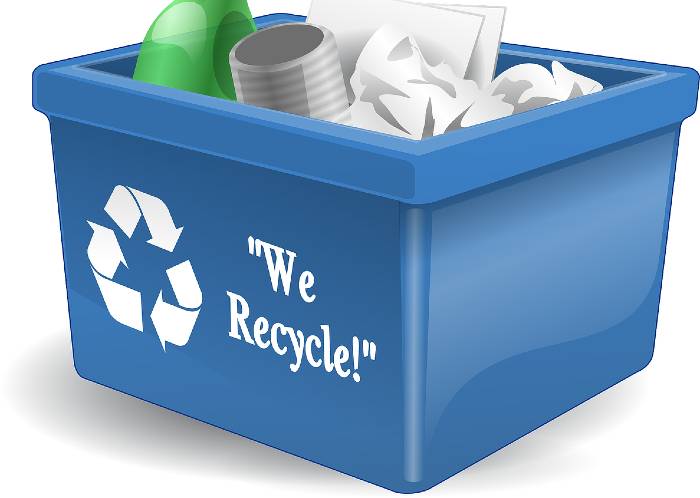 |
| Environment Quiz on recycling methods |
Environment Quiz on Recycling methods
Quiz
on recycling methods: Recycling is the process of
collecting, cleaning, processing and treating waste or scrap that is no longer
usable as waste and transforms it into new products for the same or different
uses. It is the best way to prevent environmental pollution, reduce consumption
of natural resources and save energy. It is one of the important elements of
modern waste management system and the third element of the waste hierarchy
i.e. REDUCE, REUSE and RECYCLE.
Quizzes
are the best way to validate your learning outcomes and identify your strengths
and weaknesses. It also offers an interesting way to learn new things with joy
and fun.
This recycling
methods quiz helps you understand the real meaning of recycling, the
concept of waste management, the types of recyclable waste including plastic,
waste paper and cardboard, metals, glass, kitchen waste, electronics, wood,
textiles and much more.
This recycling
methods questionnaire can be shared with employees or children or with
the community to educate them about the importance of waste management, waste
collection methods, garbage recycling and prevention of soil and water
pollution. Humans are the most beneficial species on earth as they consume most
of the resources and cause air, land and water pollution, so they are
responsible for preserving and protecting the environment. This recycling
method quiz can be used as an important tool to raise awareness of
environmental sustainability by preventing land and water pollution, saving
energy, natural resources and thus saving mother earth.
This recycling
quiz includes 20 multiple choice questions and answers, each question
has four answer options. You must select the correct one, flashing green
indicates the correct answer, while red is the wrong answer. At the end of the Environment
quiz on recycling, your total score will appear.
Let's
start the quiz and test your knowledge about recycling methods.
ENVIRONMENT QUIZ
QUIZ ON RECYCLING METHODS
Question of
Good Try!
You Got out of answers correct!
That's
1. What is exactly mean the recycling?
2. What type
of material can be recycled?
3. What are the benefits of recycling?
4. What
is Mandatory recycling collection
legislation?
5. What
is Container Depot Legislation?
6. What is Refuse bans legislation?
7. Which of the following can be converted into carpet after recycled?
8. Which of the following material is converted into pulp during
recycling?
9. Which of the following materials can give gold during recycling?
10. How many curved arrows are there in the recycling symbol?
11. What do
the three-chasing-arrows in the shape of a triangle of the recycling loop
symbol represent?
12. What
percentage of energy is required to recycle cardboard compared to making new cardboard?
13. How much
waste is produced per average person per day according to the EPA?
14. Which of
the following material cannot be recycled?
15. How many
sheets of paper does an office worker use on average per year?
16. How many
trees can we avoid recycling 1 ton of paper?
17. How many
times can glass be recycled before it loses its purity?
18. How many years does it take for aluminum canes to
decompose completely?
19. Electronic waste should be placed in which of the
following bin?
20. What does WEEE stand for?
To learn more about Air pollution, keep reading
the following information that will certainly help you think outside the box.
What is recycling?
Recycling is the process of collecting, cleaning, processing
and treating waste or scrap that is no longer usable as waste and transforms it
into new products for the same or different uses. It is simply a process of
converting waste material into new usable material by some treatment.
What waste material can be recycled?
Material that has the ability to recover its original
properties can be recycled.
Any material made of plastic, rubber, paper, cardboard, wood,
textile and metal can be recycled.
Even electronic waste, including batteries and electronics,
can also be recycled.
Biodegradable items such as kitchen waste can also be recycled
What are the benefits of recycling?
Helps to prevent environmental pollution
Prevent secondary land pollution as landfills and incinerators
Help to reduce the emission of greenhouse gases
Helps to conserves natural resources and also reduces
consumption of fresh raw material
Helps to saves energy
What legislative options have been made to ensure a stable supply of recycling materials to support the recycling program?
There are
three main legislative options have been made to ensure the stable supply of
recycling material.
1. Mandatory recycling collection: It
is the law that sets recycling targets with a target date for different cities
in the form of a certain percentage of a material to be diverted from the
city's waste stream.
2. Container Depot Legislation:
It offers the system of refunding a certain amount of
money for the return of certain product containers when a product in such
container is purchased.
3. Refuse bans: Certain materials may be
classified as hazardous waste and the disposal of these materials as waste is
prohibited. These materials can be used oil, old batteries, catalysts,
electronic waste, etc.
Summary
The Environmental
Recycling Quiz can be shared with your employees, your community and
your school children to make them aware of the importance of waste management
by recycling waste such as paper, cardboard, metal, plastic, wood, textiles,
etc. to avoid land and water pollution. This quiz can also be used as a
training aid to educate people about the benefits of recycling methods
for saving the environment, natural resources, saving energy, and a great way
to make money out of them.
Education,
awareness and law enforcement are the most effective ways to prevent and
minimize waste. The management of waste through appropriate means of segregation,
storage, disposal and recycling should be taken at individual level, industrial
level and national level by government.
This recycling
quiz is designed to cover all relevant information on recycling
processes and methods and can also be used to validate the training program to
uncover strengths and weaknesses in order to plan additional awareness programs
on the different methods of recycling for different types of
waste.



Please do not add link in the comments, it will be treated as spam comments